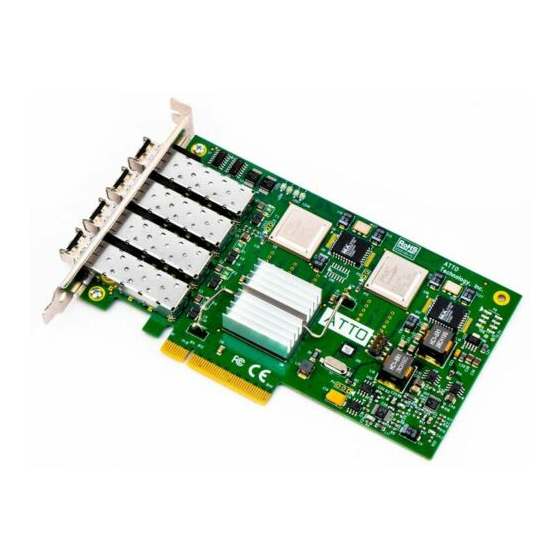The computer's BIOS scan recognizes the Celerity host adapter, but only detects
connected Fibre devices on one of the ports when using a dual or quad port Celerity
Adapter. The other port(s) reports no devices. The command dmesg can be used to
see what devices are detected on each Fibre port.
*Please note that if all devices attached to the Fibre card are reported on one
channel although connected with two links to the device, this is most likely a MPIO
or Multipathing issue. Please contact Technical Support for further a resolution.
Swap the devices
the one having issues. If the issue follows the port, verify the NVRAM settings
are the same for both channels (connection mode and data rate). If this does not
resolve the problem, replace the Fibre card.
If the issue follows the attached Fibre devices, troubleshoot the attached
devices:
Verify the Fibre devices are powered on.
Check the Fibre devices to see what type of connection mode and data rate they
are set to. Some devices use "auto" for these settings. Manually setting the
speed (1gig, 2gig, 4gig) may allow for better communication between the
devices. You may also want to force these settings on the card. This can be done
by using the ATTO Configuration Tool or entering into the ATTO CelerityFC
Utility upon boot by entering CTRL-F when prompt.
Check cable integrity. Check the cables for solid connections. Make sure the
cables snap securely into place. Inspect cable for kinks or cuts. Be careful not to
touch the ends of the cable, this can cause malfunctions in communication.
Verify the SFP is not damaged and rated for the Data Rate trying to be achieved.
Also, try reseating the SFP. If this does not work, try replacing the SFP with a
new one.
Try connecting one device at a time, adding devices until the problem occurs.
This will help pinpoint the device or cable causing the problem.
Watch the LED indicators on the Fibre card. They should show when you have a
proper link and the connection speed you have negotiated with the device after
startup. Drive lights should also flash at startup as the Fibre port is scanned.
This may give a clue as to the root cause of the issue.
The Celerity host adapter is detected by the operating system, it detects some of
the connected devices on some or all Fibre ports, but does not detect all of the
connected devices.
Verify the Fibre devices are powered on.
Check cable integrity. Check the cables for solid connections. Make sure they
snap into place. Inspect cable for kinks or cuts.
Verify the SFP is not damaged and rated for the Data Rate trying to be achieved.
Also, try reseating the SFP. If this does not work, try replacing the SFP with a
new one.
Try connecting one device at a time, adding devices until the problem occurs.
This will help pinpoint the device or cable causing the problem.
Page 3 of 5
and cables
from the Fibre port that appears to be working with
Atto Technology, Inc.
April 9, 2007

